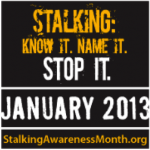This webinar presented by CALCASA in collaboration with SAFER Campus and OVW Campus Grantees to discuss the importance of students working together with their universities on sexual assault, dating violence and stalking policy. Recently in the media we have seen numerous news stories of college students vocalizing discontent with their universities about policy and response to sexual assault on campus. By being proactive with student involvement in policy, universities can create a more collaborative relationship with students to ensure their needs are being met on campus.
Presenting on the webinar today was Zoe Ginsburg and Megan McKendry from SAFER Campus. The webinar was entitled, “How to effectively include students in development and revision of Sexual Assault policy.” They covered topics such as why students are key participants in policy reform and key findings in what students look for in a campus sexual assault policy.
To view the webinar slides click here and to listen to the recording click here. To get ideas from other schools’ policies, visit the Campus Accountability Project or check out the Activist Resource Center, for free articles about how students organize.
How does your campus engage students in policy development and revision on campus?














